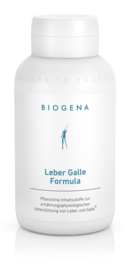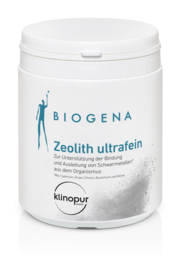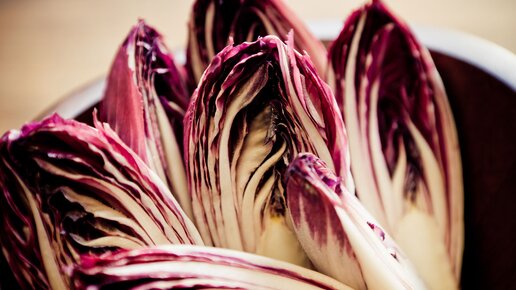The liver is the largest gland and at the same time our most important metabolic organ. Day after day, it performs truly amazing tasks: metabolizing, controlling, storing, detoxifying, and excreting. All of these functions are vital. Yet, despite the fact that the "everyday hero liver" weighs about five times as much as the heart, its role and function are often underestimated. To make life easier, some people wish to rid themselves of their physical burdens. For detoxifying the liver, selected plant substances can be the ideal companion; they soothe our liver, and we start refreshed.
How do we know when the liver needs a bit if time out?
The health of our liver is incredibly important for our vitality and our well-being. However, we don’t always remember this. For example, lots of sweet and fatty fast food, alcohol and nicotine all take a toll on the ceaselessly working metabolic organ. What we consider to be indulgent days of relaxation and feasting are actually highly stressful work days for our liver. However, its efforts generally go unsung, because our liver very often suffers in silence. Nevertheless, every so often. our liver gives us a little pointer that it would like a bit of time off. These pointers include fatigue, malaise, a feeling of fullness and a feeling of pressure in the right upper abdomen.
How to detox the liver?
Our liver is multi-talented and actually does a lot itself. It can usually take good care of itself, but even the liver has its limits. In order to prevent it from suffering burnout, we should grant this hard-working organ some well deserved time off, by protecting it from the range of metabolically demanding substances that we generally ask it to deal with. The first step for liver detox is a conscious reduction in fats, sweets and fast food as well as avoidable toxins (e.g. alcohol, nicotine and medications – unless prescribed by your doctor).
If you want to eat a diet that is aimed at being gentle on your liver, the general recommendations for a healthy diet – varied, unprocessed, organic, local and plant-based – couldn’t be better. In addition, slowing down and destressing in everyday life is also good for the liver, because the stress hormone cortisol is a bitter pill for our liver to have to deal with in the long term.
How can we specifically support our liver?
Although constant stress is unfriendly to the liver, the metabolic organ loves the bitter side of life - in plant form. Plant extracts have long been used to provide nutritional and physiological support for the liver and its auxiliary organ, the gallbladder. Extracts of artichoke and milk thistle in particular have become established for this purpose, contributing to normal liver function and supporting normal bile production and thus normal digestion.
In addition, there are also micronutrients (vitamins, minerals, trace elements) that help to keep the enzymatic movement in focus. As so-called co-factors, they ensure that the liver enzymes can go about their work smoothly. For example, zinc supports fat and carbohydrate metabolism and, together with other micronutrients such as vitamin B (riboflavin) and selenium, helps protect cells from oxidative stress.
Other home remedies for liver care
Alkalis & liquid
A good acid-base balance is an ongoing balancing act for our body. Especially after longer periods of heavy meat, fat and sugar consumption, our organism is ready for a nutrient-rich, alkaline-generating diet with fruits, vegetables, algae and herbs. In addition, special preparations can also supply valuable base compounds. In addition to a healthy diet, sufficient fluid supply is required. At least two liters of liquid in the form of water or unsweetened organic herbal teas should be on the menu daily.
Hepatic wrap
The hepatic wrap is considered a tried and tested home remedy. It improves the blood circulation of the liver and thus stimulates the liver processes. A small towel (e.g. guest towel) is immersed in hot salt water, squeezed and placed twice folded on the skin above the liver. Then a hot-water bottle is placed on the towel, a larger towel is wrapped as tightly as possible around the abdomen and the wrap is left on the abdomen for 30 minutes (Note: Do not use in the case of bleeding and/or ulcers in the digestive tract!).
Sports
Physical activity not only keeps us fit, it also proves to be extremely useful when disposing of bodily contamination. In addition to cooling the body, sweat is used to remove salts and waste materials. In addition, exercise stimulates the metabolism and thus also liver activity.
Reduction in pollutants
It is naturally best for our liver to avoid harmful substances. Plant-based foods such as rice, vegetables or fruits, whether organic or not, should always be washed before consumption. We should walk or exercise away from busy roads in the fresh air and we should use natural variants for cosmetics and cleaning agents.
Destressing
Long-term stress is not only a burden on our mind. In fact, our liver also suffers when we are stressed. It is therefore all the more important to let go not only physically, but also mentally. Relaxing alkaline baths, long walks or gentle yoga exercises, for example, help us to de-stress in everyday life and serve the purpose of holistic cleansing.
How often and for how long should we de-stress the liver?
How often and for how long we should treat our liver to some time out depends on factors such as individual diet, lifestyle, pollution and predisposition. However, an annual or semi-annual break definitely does this organ good in its detoxification mission.
And free the liver: If we regularly consume alcohol, eat fat or take medication, we should treat this high performing organ more often to a regenerative break. The liver always accepts with thanks such liver-friendly days, which are heavy in simple food and substances that support the liver.
References & sources:
Zadeh, S.H. et al. Relationship between dietary patterns and non-alcoholic fatty liver disease: A systematic review and meta-analysis. J Gastroenterol Hepatol. 2021 Jun;36(6):1470-1478. doi: 10.1111/jgh.15363. Epub 2020 Dec 14.
Berná, G., Romero-Gomez, M. 2020. The role of nutrition in non-alcoholic fatty liver disease: Pathophysiology and management. Liver Int Actions. 2020 Feb:40 Suppl 1:102-108. doi: 10.1111/liv.14360.
Stefanaki, C. et al. Chronic Stress and Steatosis of Muscles, Bones, Liver, and Pancreas: A Review. Horm Res Paediatr. 2023;96(1):66-73. doi: 10.1159/000522540. Epub 2022 Feb 10.
Panahi, Y. et al. Efficacy of artichoke leaf extract in non-alcoholic fatty liver disease: A pilot double-blind randomized controlled trial. Phytother Res. 2018 Jul;32(7):1382-1387. doi: 10.1002/ptr.6073. Epub 2018 Mar 9.
Federico, A. et al. Silymarin/Silybin and Chronic Liver Disease: A Marriage of Many Years. Molecules. 2017 Jan 24;22(2):191.
Davaatseren, M. et al. 2013. Taraxacum official (dandelion) leaf extract alleviates high-fat diet-induced nonalcoholic fatty liver. Food Chem Toxicol. 2013 Aug:58:30-6. doi: 10.1016/j.fct.2013.04.023. Epub 2013 Apr 18.
Krupp, D. et al. 2012. Long-term dietary potential renal acid load during adolescence is prospectively associated with indices of nonalcoholic fatty liver disease in young women. J Nutr. 2012 Feb;142(2):313-9. doi: 10.3945/jn.111.150540. Epub 2012 Jan 5.
Martin, M. Labormedizin in der Naturheilkunde, 4. Auflage. München: Elsevier GmbH, 2013.
Karampathsis, E. 2012. Zeolite: Investigation of the Effectiveness and Safety as an Oral Chelating Agent for Heavy Metals. A comparison between different commercially available preparations. Original study. Scottsdale, Arizona. S. 1–12.
Martin, M. 2011. Gesundes Entgiften - Regulationstherapien richtig anwenden. Biogena Inside. 2(1)
Flowers, J. et al. 2009. Clinical evidence supporting the use of an activated clinoptilolite suspension as an agent to increase urinary excretion of toxic heavy metals. Nutr Diet Suppl. 1:11–8.
Hofmann, T. et al. 2009. Modulation of detoxification enzymes by watercress: in vitro and in vivo investigations in human peripheral blood cells. Eur J Nutr. 48(8):483-91.
Innis, S. M. et al. 2007. Choline-related supplements improve abnormal plasma methionine-homocysteine metabolites and glutathione status in children with cystic fibrosis. Am J Clin Nutr. 85(3):702-8
Shukla, Y., Singh, M. 2007. Cancer preventive properties of ginger: a brief review. Food Chem Toxicol. 45(5):683-90.
Hahn, A. Nahrungsergänzungsmittel und bilanzierte Diäten, 2. Auflage. Stuttgart: Wissenschaftliche Verlagsgesellschaft, 2006.
Yemitan, O. K., Izegbu, M. C. 2006. Protective effects of Zingiber officinale (Zingiberaceae) against carbon tetrachloride and acetaminophen-induced hepatotoxicity in rats. Phytother Res. 20(11):997-1002.
Watzl, B., Leitzmann, C. Bioaktive Substanzen in Lebensmitteln, 3. unveränderte Auflage. Stuttgart: Hippokrates Verlag, 2005.
El-Zayadi, A. R. et al. 2005. Non-interferon-based therapy: an option for amelioration of necro-inflammation in hepatitis C patients who cannot afford interferon therapy. Liver Int. 25(4):746-51.
Buang, Y. et al. 2005. Dietary phosphatidylcholine alleviates fatty liver induced by orotic acid. Nutrition. 21(7-8):867-73.
Wagner, H., Wiesenauer, M. Phytotherapie: Phytopharmaka und pflanzliche Homöopathika, 2. Auflage. Stuttgart: Wissenschaftliche Verlagsgesellschaft, 2003.
Shakov, Y. I. 2003. [Klinische Studie zur Wirkung von Litovit bei der Ausleitung von Schwermetallen aus dem menschlichen Körper.] Forschungsbericht der Tshelbinsker Staatlichen Medizinischen Akademie des Ministeriums für Gesundheitswesen der Russischen Föderation.
LeBlanc, M. J. et al. 2003 Effects of dietary soy bean lecithin on plasma lipid transport and hepatic cholesterol metabolism in rats. J Nutr Biochem. 14(1):40-8.
Halsted, C. H. 2004. Nutrition and alcoholic liver disease. Semin Liver Dis.24(3):289-304.
Koo, H. N. et al. 2004. Taraxacum officinale induces cytotoxicity through TNF-alpha and IL-1alpha secretion in Hep G2 cells. Life Sci. 74(9):1149-57.
Englisch, W. et al. 2000. Efficacy of Artichoke dry extract in patients with hyperlipoproteinemia. Arzneimittelforschung. 50(3):260-5.
Wegener, T., Fintelmann V. 1999. Pharmacological properties and therapeutic profile of artichoke (Cynara scolymus L.). Wien Med Wochenschr.149(8-10):241-7.
Monographie Kommission E. 1988. Lecithinium ex soja. Bundesanzeiger. 85.
Grant, D.M. Detoxification pathways in the liver. J Inherit Metab Dis. 1991;14(4):421-30. doi: 10.1007/BF01797915.
Deak, G. et al. 1990. Immunomodulator effect of silymarin therapy in chronic alcoholic liver diseases. Orv Hetil. 131(24):1291-2.
Leberwickel: https://praxistipps.focus.de/leberwickel-fuer-bessere-durchblutung-und-entgiftung-anwendung-und-nutzen_107011
Biogena Mikronährstoffcoach: https://www.mikronaehrstoffcoach.com/de/at/indikationen/indication.leberschutz-leberfunktionsstoerungen.html









